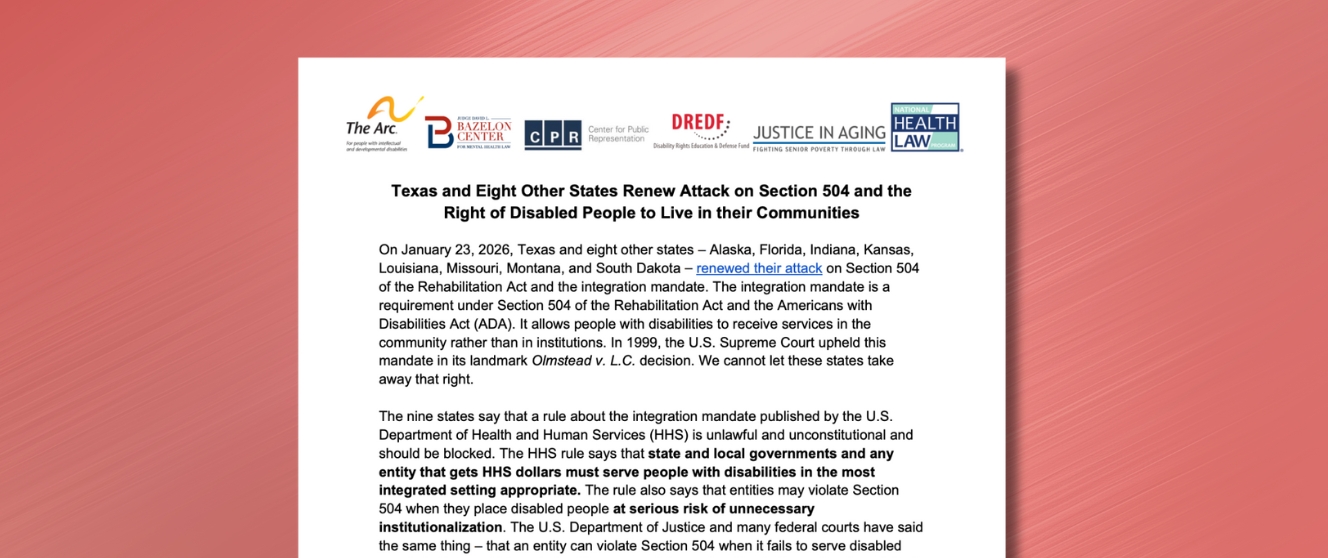
Webinar Recording
On June 28, 2024, the U.S. Supreme Court ruled in a case called City of Grants Pass, Oregon v. Johnson (“Grants Pass”) that fining and jailing people experiencing homelessness for sleeping outside when they have nowhere else to go does not violate the cruel and unusual punishments clause of the constitution. The decision has given states and local governments the go ahead to make criminalization their primary, front-line response to homelessness and has had devastating effects on the civil rights of thousands of unhoused people across the United States. This webinar:
- Provides an overview of the Grants Pass case and the disability-related “friend of the court” briefs filed in the case;
- Explains why people with disabilities are particularly at-risk of harm due to the increased criminalization of homelessness;
- Explores the relationship between the Grants Pass case, CARE Courts / civil commitments, and efforts to increase the institutionalization of disabled people;
- Critiques the role of law enforcement and judicial authorities in responding to homelessness; and
- Provides an overview of advocacy tools and strategic thinking regarding potential next steps in advocacy
Presenters:
Michelle Uzeta, Deputy Legal Director, Disability Rights Education and Defense Fund
Monica Porter Gilbert, Policy & Legal Advocacy Attorney, Bazelon Center for Mental Health Law
Siya Hegde, Staff Attorney, National Homelessness Law Center

